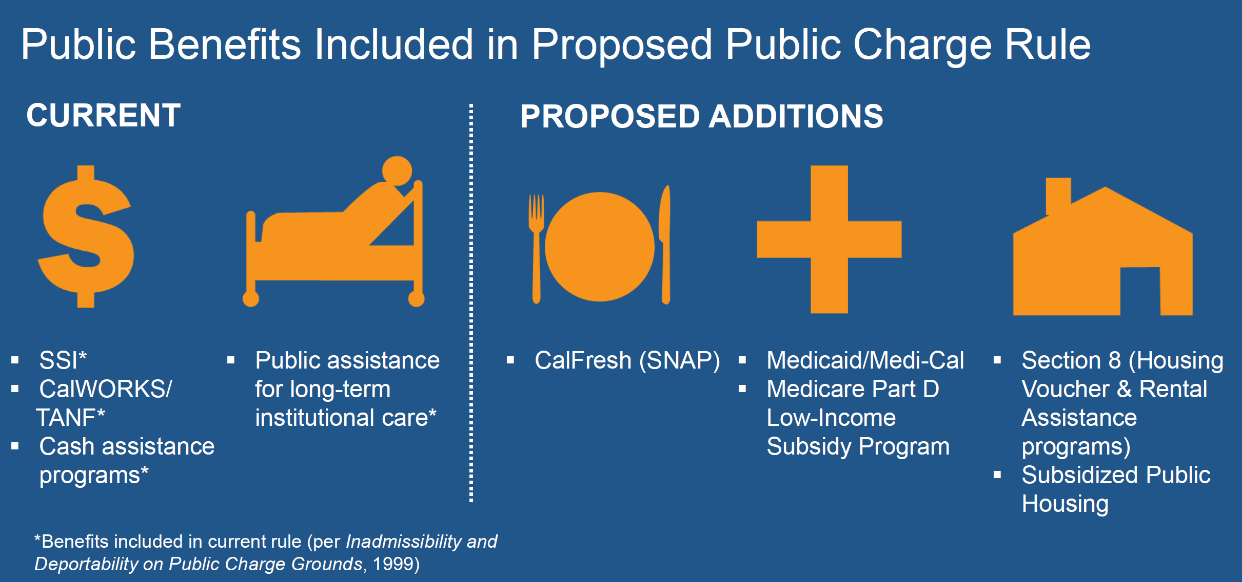Imagine if you were asked to choose between putting food on your family’s table today or receiving a green card to secure a future in the U.S. What would you do?
That the choice facing thousands of our immigrant neighbors – including Food Bank participants because of proposed changes to federal “public charge” rules which could penalize people seeking residency or citizenship for accepting CalFresh (food stamps).
Our Food Bank is working alongside a broad coalition of advocates, community organizations, and elected officials, to coordinate an incredible outpouring of comments and concerns.
Before proposed “public charge” rules are finalized, the government must review and respond to every unique public comment about the proposed regulation. To date, 116,000 comments have been submitted by concerned and engaged people just like you.
What Is “Public Charge”?
The “public charge” test is designed to identify people who rely on the government as their main source of support. It’s used to deny lawful permanent residence or “green card” status. On October 10, the Department of Homeland Security proposed changes to exclude anyone who is likely to use certain health care, nutrition (including SNAP/CalFresh) or housing programs in the future. The proposed test adds specific standards for income, health, age, family size, assets, and English proficiency, and expands the forms of public assistance that are counted in a “public charge” determination.

Fig. 1 Changes in Public Benefits included in Public Charge Rule[1]
Public Charge Fear Fuels Hunger
An estimated 20,000-44,000 people in the Bay Area may forgo CalFresh (food stamps) benefits because of the proposed changes, according to recent research from the UCLA Center for Health Policy Research. That’s equal to a loss of benefits of between $32 and $74 million right here in our communities. We know firsthand that this “chilling effect” is preventing immigrants from enrolling in CalFresh and even from attending our weekly food pantries out of fear.
[1] Ponce, Ninez, et al. “How Proposed Changes to the ‘Public Charge’ Rule Will Affect Health, Hunger and the Economy in California.” The UCLA Center for Health Policy Research, 7 Nov. 2018, healthpolicy.ucla.edu/newsroom/Documents/2018/public-charge-seminar-slides-nov2018.pdf.



Share